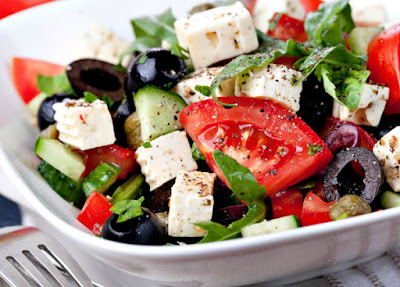Health Day
(HealthDay News) - In news that sounds a touch like it came straight from a science fiction thriller, scientists say that eating an excessive amount of meat may shrivel your mind.
On the other side, be that as it may, eating sound nourishments from the purported Mediterranean eating routine may offer your mind some assistance with staying fit as a fiddle as you get more seasoned, the new study recommends. The specialists said that individuals more than 65 who ate more fish, vegetables, natural product, grains and olive oil had a bigger mind volume than a comparative gathering who didn't take after a Mediterranean diet.
"It was urging to see that the more you stick to this Mediterranean eat less, the more insurance you get against mind decay [shrinkage]," said study creator Yian Gu, a partner teacher of neuropsychology at Columbia University in New York City. "For individuals keen on the eating regimen and way of life elements prompting better wellbeing, I think this is another study steady with past studies that show the Mediterranean eating routine is a solid eating routine," she included.
In any case, Gu noticed that her study's observational discoveries can't demonstrate a conclusive circumstances and end results relationship in the middle of eating routine and mind volume. The study was just intended to discover an affiliation.
Discoveries from the exploration were distributed online Oct. 21 in the diary Neurology.
Past exploration has connected the Mediterranean eating regimen to a lower danger of Alzheimer's illness, the study said. The eating routine burdens the utilization of vegetables, vegetables (beans, peas and lentils), organic products, oats, fish and monounsaturated fats, for example, olive oil, the study creators said. The eating plan additionally incorporates a low admission of meat, poultry, soaked fats and dairy items, and in addition gentle to direct measures of liquor, as indicated by the analysts.
For the study, Gu and her partners split 674 grown-ups into two gatherings in view of how nearly their eating methodologies adjusted to the Mediterranean diet. Their normal age was 80 years. All members experienced MRI sweeps of their brains to gauge aggregate cerebrum volume and thickness. They likewise finished surveys about their nourishment decisions and eating examples.
The specialists found that cerebrum volumes of the individuals who didn't take after a Mediterranean eating routine were littler than the individuals who did. The distinction was minor in general size - compared to around five years of maturing, the study creators said.
In any case, all the more particularly, the examiners observed that eating more fish and less meat was connected with even less cerebrum shrinkage.
Gu said researchers don't yet know precisely why the Mediterranean eating regimen appears to be more advantageous for the cerebrum. On the other hand, other examination has set up that a higher admission of fish and vegetables and a lower admission of meat are gainful for mind cell development, she said.
Dr. Joseph Masdeu, chief of the Nantz National Alzheimer Center at Houston Methodist Hospital, commended the exploration as "a rich method for taking a gander at this [issue]."
Eating Too Much of This Might Shrink Your Brain
Masdeu, who wasn't included in the exploration, said, "I think the take-home message is clear . . . an eating routine containing less meat and maybe more fish is beneficial for you. There are negative studies [focusing on] the Mediterranean diet too, however a few affirming a beneficial outcome. So it's conditional, yet it's the most grounded preventive methodology we have [promoting mind health] together with activity."
Utilizing the study discoveries, Gu fought that eating no less than 3 to 5 ounces of fish week after week, or close to 3.5 ounces of meat every day, could shield the cerebrum from shrinkage.
She recognized that study members may have erroneously reviewed their sustenance utilization propensities in the surveys utilized.
"We requested that individuals review their past dietary propensities, so that is inclined to review inclination," she said.
Dr. Malaz Boustani, a representative for the American Federation for Aging Research, said the new study gave "great informing" for general society.
"This is an empowering study that will truly make us work harder to perceive how we can really support individuals . . . to change their eating regimen to suit the Mediterranean eating regimen," said Boustani, additionally establishing chief of the Sandra Eskenazi Center for Brain Care Innovation at Indiana University. "It makes it simple for individuals to make the best choice."
SOURCES: Yian Gu, Ph.D., colleague educator, neuropsychology, Columbia University, New York City; Joseph Masdeu, M.D., executive, Nantz National Alzheimer Center at Houston Methodist Hospital, Houston; Malaz Boustani, M.D., M.P.H., representative, American Federation for Aging Research, New York City, and establishing chief, Sandra Eskenazi Center for Brain Care Innovation, Indiana University, and teacher, maturing exploration, Indiana University School of Medicine, Indianapolis; Oct. 21, 2015, Neurology, online

Comments
Post a Comment